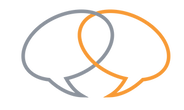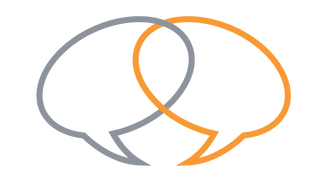Substance/Drug & Alcohol use
It can feel a risk to get professional help for substance use, particularly because some are illegal, and you may not be sure what the professionals' response may be. There is an understandable fear of what the outcome might be in telling a professional or stranger about your substance use, especially if you are a professional, too.
I work with professionals, and young people, helping them regain control. Whoever you are, I am not here to judge, I am here to be curious, compassionate and help.
What is substance?
When a professional says substance they usually mean drugs, these could be common drugs such as amphetamine (speed), cannabis (weed/skunk), and Cocaine, ecstasy, or MDMA. However, it can mean other drugs such as alcohol, Ketamine, Nicotine, and 'legal highs' such as 2CB, Magic, Mephedrone, Nitros Oxide etc. Terminology changes, and substances change. Alcohol & Caffeine are also drugs – legal ones, and did you know caffeine is the most commonly used and socially accepted drug.?
People also approach me for help with addictions to prescription medications, such as benzodiazepines (Alprazolam/Xanax) opioids. I have helped people to recover from substance use, typically, after they have significantly impacted their well-being, lost family & friends, or have experienced trauma through a 'drug-induced psychosis'.
Most people who come to me for support with substance misuse/use want help with cocaine use, and alcohol use, and the effects of stopping after long-term use. In Liverpool, there is a culture of functional cocaine use that runs through young men. Those who heavily use cannabis usually have a desire to stop and break the habit, but unfortunately have little motivation to do so because of the nature of the drug… and it also becomes an easy and pleasurable coping mechanism.
It's not just the drugs/alcohol impact on health that is a problem, it's the frictions it causes in people's relationships, and the trauma it leaves on the brain and the nervous system. People close to the user see the substance use and the change in the person, and naturally, judge them, this triggers a protective to shame response in the user, and the cycle continues.
People can lose and also gain meaning, connection, and relationships, as the 'neural pathways in the brain change. Pleasure and solace become something which is only gained through substance use/abuse.
If you are dedicated and want to commit to getting help, and making a change then book in to see me, and we can work together on it.
I integrate Brainspotting, IFS, and EMDR Therapy which helps a person's internal nervous system learn to re-regulate itself. This works across the spheres of consciousness and subconscious, so there is little required in the way of talking or 'thought challenging'.
Sometimes, you know and think that you shouldn't do such and such… but this does not make sense to the part of your brain that is responsible for the reward of the drug. “The reward part of the brain does not think, it just craves”
With Brainspotting therapy we work with the reward part of the brain, through eye positions, and corresponding neurological transmitters within the brain. In IFS Therapy, we view it as only a part of you that uses and work with that part – not against it. IFS views you holistically and values all aspects of you.
Many therapies do not deal with the physical elements of substance use. Neurotherapies that I employ go deeply, and quickly into the reward centre of the brain, where the feelings associated with the addiction/habit form are formed. This helps with the physical stress of giving up, and withdrawing/craving feelings substance use can create.
I also support people who are suffering because of their relationship with the person who is using substances, etc.
There are different levels of drug and alcohol use, if your use of substance is severe, to chronic, for example you are mostly under the influence through your day-day activities then seeing someone in private may not be appropriate, and you may consider rehab. I see mainly see people who have some degree of control, but tend to go on 'binges' more than they's like.
Many people want a quick fix, unfortunately, there is no quick fix. However, some therapies are quicker and more helpful than others…
I work with professionals, and young people, helping them regain control. Whoever you are, I am not here to judge, I am here to be curious, compassionate and help.
What is substance?
When a professional says substance they usually mean drugs, these could be common drugs such as amphetamine (speed), cannabis (weed/skunk), and Cocaine, ecstasy, or MDMA. However, it can mean other drugs such as alcohol, Ketamine, Nicotine, and 'legal highs' such as 2CB, Magic, Mephedrone, Nitros Oxide etc. Terminology changes, and substances change. Alcohol & Caffeine are also drugs – legal ones, and did you know caffeine is the most commonly used and socially accepted drug.?
People also approach me for help with addictions to prescription medications, such as benzodiazepines (Alprazolam/Xanax) opioids. I have helped people to recover from substance use, typically, after they have significantly impacted their well-being, lost family & friends, or have experienced trauma through a 'drug-induced psychosis'.
Most people who come to me for support with substance misuse/use want help with cocaine use, and alcohol use, and the effects of stopping after long-term use. In Liverpool, there is a culture of functional cocaine use that runs through young men. Those who heavily use cannabis usually have a desire to stop and break the habit, but unfortunately have little motivation to do so because of the nature of the drug… and it also becomes an easy and pleasurable coping mechanism.
It's not just the drugs/alcohol impact on health that is a problem, it's the frictions it causes in people's relationships, and the trauma it leaves on the brain and the nervous system. People close to the user see the substance use and the change in the person, and naturally, judge them, this triggers a protective to shame response in the user, and the cycle continues.
People can lose and also gain meaning, connection, and relationships, as the 'neural pathways in the brain change. Pleasure and solace become something which is only gained through substance use/abuse.
If you are dedicated and want to commit to getting help, and making a change then book in to see me, and we can work together on it.
I integrate Brainspotting, IFS, and EMDR Therapy which helps a person's internal nervous system learn to re-regulate itself. This works across the spheres of consciousness and subconscious, so there is little required in the way of talking or 'thought challenging'.
Sometimes, you know and think that you shouldn't do such and such… but this does not make sense to the part of your brain that is responsible for the reward of the drug. “The reward part of the brain does not think, it just craves”
With Brainspotting therapy we work with the reward part of the brain, through eye positions, and corresponding neurological transmitters within the brain. In IFS Therapy, we view it as only a part of you that uses and work with that part – not against it. IFS views you holistically and values all aspects of you.
Many therapies do not deal with the physical elements of substance use. Neurotherapies that I employ go deeply, and quickly into the reward centre of the brain, where the feelings associated with the addiction/habit form are formed. This helps with the physical stress of giving up, and withdrawing/craving feelings substance use can create.
I also support people who are suffering because of their relationship with the person who is using substances, etc.
There are different levels of drug and alcohol use, if your use of substance is severe, to chronic, for example you are mostly under the influence through your day-day activities then seeing someone in private may not be appropriate, and you may consider rehab. I see mainly see people who have some degree of control, but tend to go on 'binges' more than they's like.
Many people want a quick fix, unfortunately, there is no quick fix. However, some therapies are quicker and more helpful than others…
|
|
|
|
I don't know how it worked, but I've now stopped using (cocaine) since we did Brainspotting.
It's helped me to stop and think. A. Client
"After Brainspotting therapy I understood my addiction at a deeper level, I had less cravings which subsided quickly, and I had a lot more control over it, than it over me" A. Client
"I'm not sure how it worked… but it did!" A. Client
It's helped me to stop and think. A. Client
"After Brainspotting therapy I understood my addiction at a deeper level, I had less cravings which subsided quickly, and I had a lot more control over it, than it over me" A. Client
"I'm not sure how it worked… but it did!" A. Client



